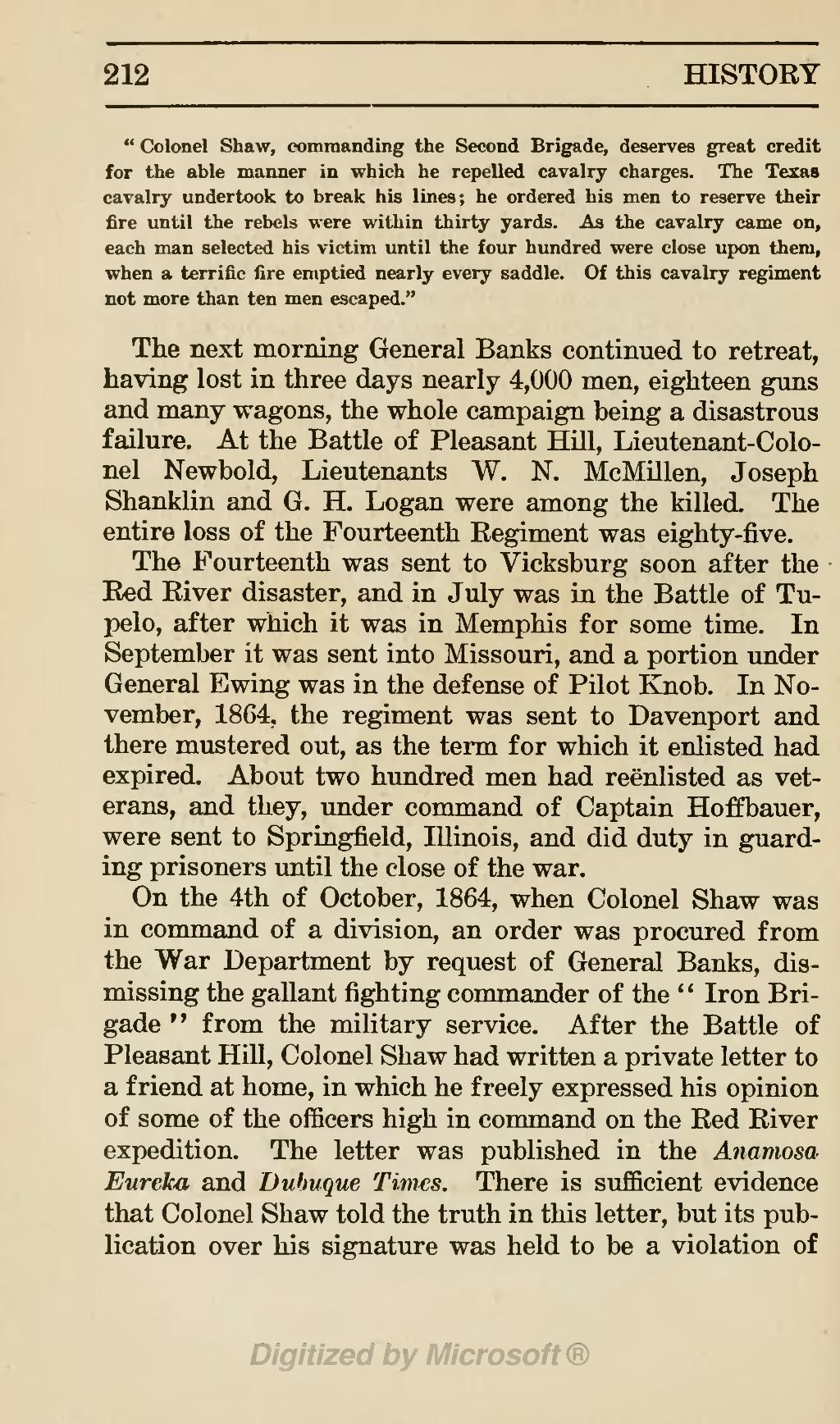The next morning General Banks continued to retreat, having lost in three days nearly 4,000 men, eighteen guns and many wagons, the whole campaign being a disastrous failure. At the Battle of Pleasant Hill, Lieutenant-Colonel Newbold, Lieutenants W. N. McMillen, Joseph Shanklin and G. H. Logan were among the killed. The entire loss of the Fourteenth Regiment was eighty-five.
The Fourteenth was sent to Vicksburg soon after the Red River disaster, and in July was in the Battle of Tupelo, after which it was in Memphis for some time. In September it was sent into Missouri, and a portion under General Ewing was in the defense of Pilot Knob. In November, 1864, the regiment was sent to Davenport and there mustered out, as the term for which it enlisted had expired. About two hundred men had reenlisted as veterans, and they, under command of Captain Hoffbauer, were sent to Springfield, Illinois, and did duty in guarding prisoners until the close of the war.
On the 4th of October, 1864, when Colonel Shaw was in command of a division, an order was procured form the War Department by request of General Banks, dismissing the gallant fighting commander of the “Iron Brigade” from the military service. After the Battle of Pleasant Hill, Colonel Shaw had written a private letter to a friend at home, in which he freely expressed his opinion of some of the officers high in command on the Red River expedition. The letter was published in the Anamosa Eureka and Dubuque Times. There is sufficient evidence that Colonel Shaw told the truth in this letter, but its publication over his signature was held to be a violation of
